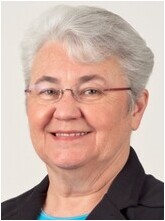 Supply Chain leaders should experience this at least once ...
Supply Chain leaders should experience this at least once ...
Imagine progressing through a career without ever having experienced certain emotions, events, issues, temptations and trials that can help shape your character, heart, mind and spirit.
Some might argue that such avoidance amounts to good fortune or luck; others contend the lack of experiencing any of the aforementioned qualities fails to represent progress at all. Roadblocks, speedbumps and walls that motivate bobbing and weaving, reversals and U-turns or even charging like a bull or rhinoceros contribute to a professional's, a person's, a leader's development.
As a result, Leaders & Luminaries, the strategic and tactical thinking journal of the Bellwether League Foundation, asked a number of Bellwether Community supporters who are award-winners and/or sponsors about "that one thing" in a Supply Chain leader's career that he or she should achieve and/or experience at least once. Their responses center on a common theme or two, but some may surprise you.

"Direct contact with caregivers in the clinical setting. In my perspective the opportunity to work over the years as an orderly and nursing assistant was invaluable into providing insights. These experiences provided an enhanced understanding of the needs clinicians face, including the stresses of daily activities and interactions with patients and their families and supporting caregivers."

"Looking back on 25 years in supply chain the most worthwhile learning experience occurred during the worst of times. Days without full power, internal infrastructure damage, weather events-snow storms, ice, floods, limited staffing, epidemics, pandemics and other disruptions. Yes, these are all forms of disruption that lead to compromised supply chains, stressed staff, concerned patients and families. It is important that supply chain actively participates in the hospital emergency management program that should be following National Incident Management Systems structure and standards and leads the supply or operational units defined in their organizations program. Frequent situational drills help identify gaps in written policies and procedures. Putting them into practice during actual times of disruption while keeping track of learnings continues to de-risk your organization."

"Be able to measure their contribution to patient outcomes."

"Hiring and developing your replacement and then moving on so they can take your role and be better at it than you were."

"One of the most humbling experiences that unfortunately do happen is having to address a family when a patient untoward event occurs. Whether it is caused by an equipment failure, user error or other situation these experiences are never easy. However, having gone through the experience will never let you forget that there is a patient on the other end of your service delivery. It keeps you grounded in to being a servant leader to those that count on you every day."

"Failure. While this may be trite, there is no question that going through disappointments on achieving aspired intents of advancing a supply chain can prove to be more insightful than ongoing success. It makes one pause and reflect, forces one on whether the conventional ways continue to work effectively and creates new thinking that is required to progress on addressing tough challenges. Success is always desired, but there is a tendency to get complacent on methods or approaches that one leans on too consistently in approaching problems to solve. Failure is certainly a humble moment, but it will make one stronger and crisp in the long term."

"A failure that you learn from. It's foundational for coaching your team not to be afraid to fail, it's tuition for success."

"Stunning failure. Failure makes a person examine themselves in a way that success does not. Washington, Lincoln, Grant, Churchill and so many other historically accomplished people suffered massive setbacks that would have ruined others. But they learned from their experiences, stayed with it and overcame."

"Failure. It may seem counterintuitive to many, but effective leaders absolutely need to experience failure to stay humble enough to accept new ideas. New ideas spring from innovation and can only happen when you accept the possibility of failure and learn from it. Failure feeds innovation! Leaders cannot be afraid to take calculated risks and if you are not testing and failing at all — then you are potentially being too safe. The skill of ideating a concept, bringing that concept to life with a plan and then developing implementation sequences are not learned from a textbook. Trying and failing hones our ability to work through problems and provides opportunities to teach others. Leaving no room for failure shuts down innovation and creative problem-solving. It is critically important that we can teach people that failure is not fatal ... it is always a learning opportunity."

"Experience being wrong and making a mistake. Most importantly, learn from that mistake."